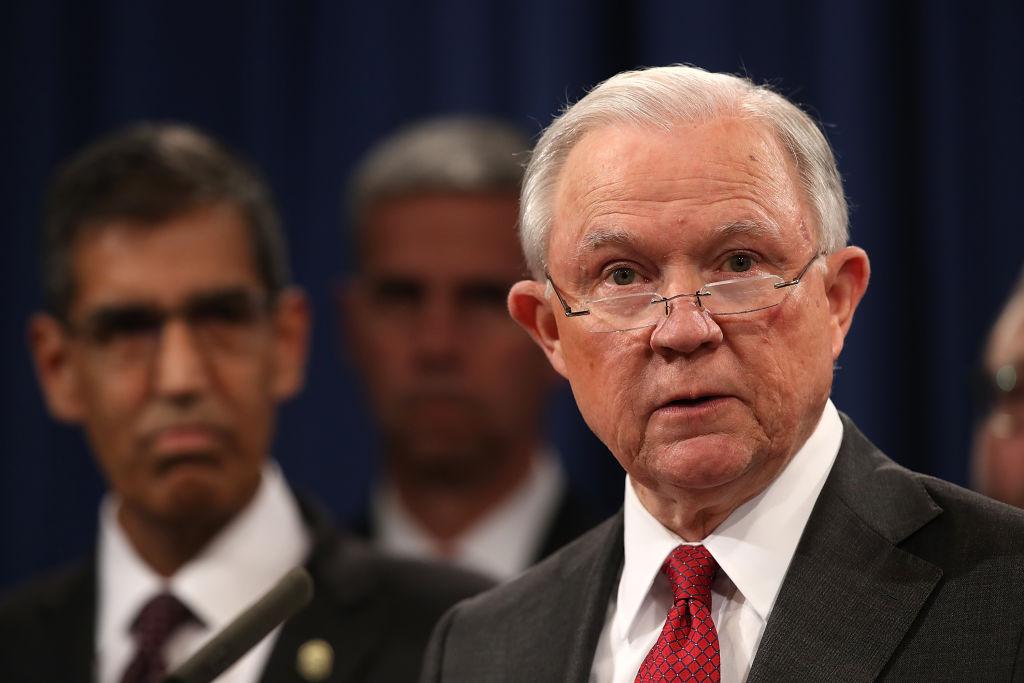WASHINGTON—Attorney General Jeff Sessions says a consent agreement between the city of Chicago and the ACLU was a “very unwise agreement” that is not only anti-democratic, but has also contributed to a 30 percent increase in murders the year it was implemented.
Speaking to the Chicago Crime Commission on Oct. 19, he cited a study by University of Utah researchers, who concluded that a decline in stop-and-frisks, used to search people suspected of engaging in illegal behavior, was connected to the spike in murders the city saw in 2016, the year the agreement with the American Civil Liberties Union went into effect.





